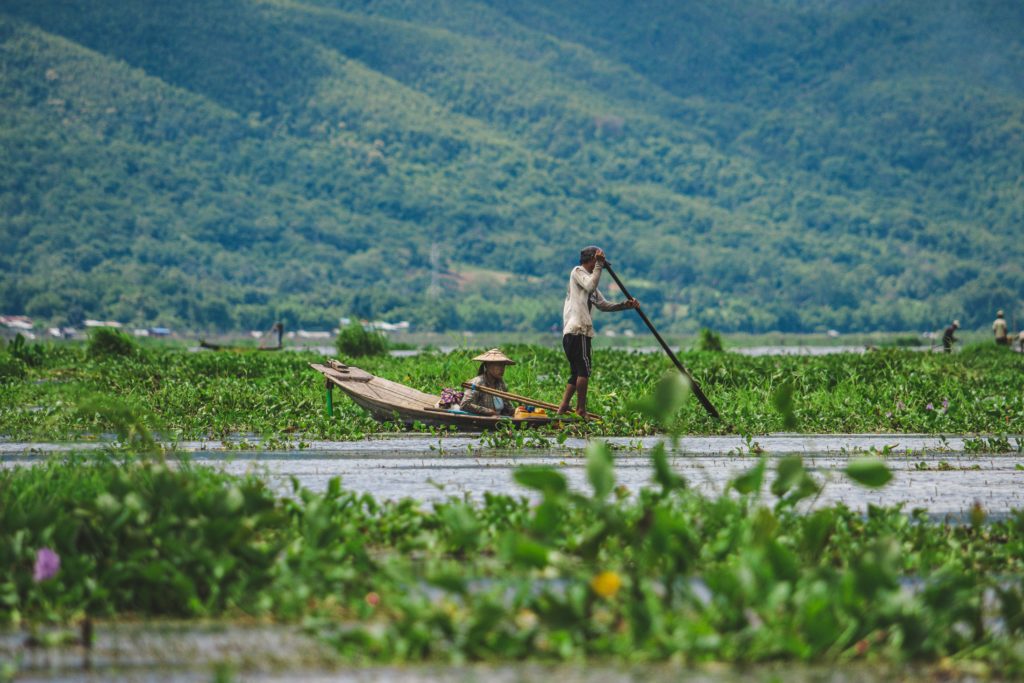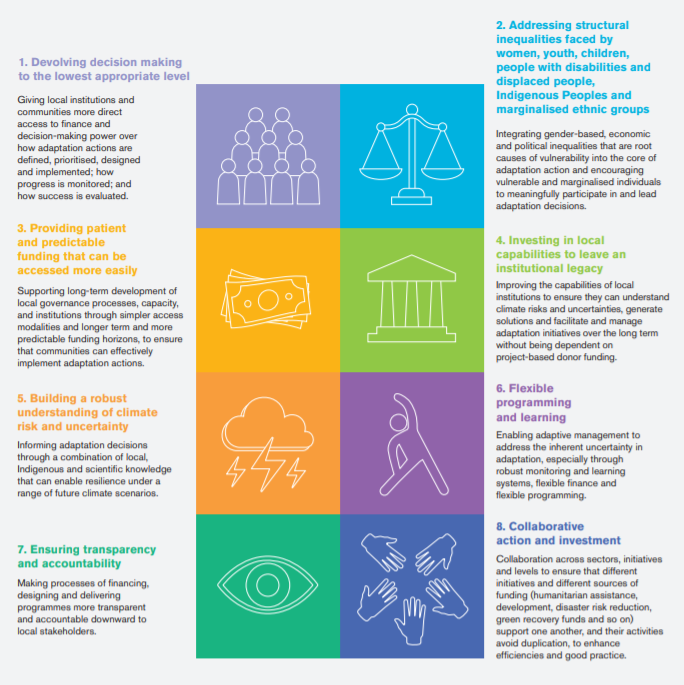E Co. endorses Principles for Locally Led Adaptation
8 November 2021, Category: All insights, News, Tags: adaptation, IIED, WRI

E Co. is delighted to endorse the eight principles of Locally Led Adaptation (LLA) Action, co-developed under the Global Commission on Adaptation, furthering our commitment to supporting context specific climate change responses through timely access to information, relationships and climate finance at local levels in developing countries.
More about the LLA Principles
What are the LLA Principles?
The 8 Principles for LLA are designed to guide more effective and more equitable adaptation, where local actors have agency over adaptation design, processes and outcomes. Aligning adaptation programming and financing with the principles requires tackling power imbalances and embracing challenges and new approaches.
How were the LLA Principles developed?
Launched at the 2021 Climate Adaptation Summit and built from years of research, the Principles were co-developed between 2018 to 2021 under the Global Commission on Adaptation and the leadership of Commissioners Sheela Patel and Dr Muhammed Musa with IIED, WRI, ICCCAD and more than 50 other stakeholders from across the landscape of climate action.
How does someone endorse the LLA Principles?
Endorsers are asked to complete a short form explaining how their organisation intends to put the LLA Principles into practice in 100 words or less. Endorsers are also asked to share what this means to them, briefly describing what changes will be made or current practices strengthened to support LLA. The single requirement of all endorsers is to join the LLA learning journey, and share your progress and learning through gathering at Gobeshona, CBA and Development and Climate Days, and so engage with the Community of Practice. You can find the LLA principles on IIED or WRI’s websites, along with a link to the endorsement form.
Statement from E Co. Senior consultant, Mel Phadtare
“E Co. is delighted to endorse the eight principles of Locally Led Adaptation Action and commits further to supporting context specific climate change responses through timely access to information, relationships and climate finance at local levels in developing countries.
Through our work in climate finance project design and education, we engage local stakeholders to map vulnerabilities and needs against locally agreed prioritised actions that meet the investment requirements of funding mechanisms. We see an increasing need to build collaboration between funders, governments and local communities that ensure inclusive and evolved approaches for climate financing and that relate to the climate emergency, capacities and opportunities on the ground. We are hopeful that our approach and continued work with others, will speed up and effectively address current gaps in locally led climate action that leave no one behind.”

Join the conversation by posting a comment below. You can either use your social account, by clicking on the corresponding icons or simply fill in the form below. All comments are moderated.